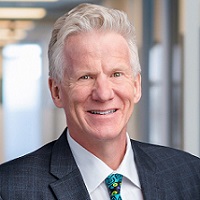 By Nick van Terheyden aka Dr Nick, Principal, ECG Management Consulting
By Nick van Terheyden aka Dr Nick, Principal, ECG Management Consulting
Twitter: @drnic1
Host of Healthcare Upside Down – #HCupsidedown
It is well-established medical knowledge that obesity is a major contributor to poor health. Being overweight increases your risk of disease as well as the chances of suffering from a wide range of chronic and acute conditions—many of which are life-threatening and life-limiting.
Prior to the 1970s, the obesity rate of our population remained fairly steady, but the ensuing decades have seen a sharp increase. In 1980, the US Department of Health & Human Services and the US Department of Agriculture released a document titled “Dietary Guidelines for Americans” aimed at reducing the risk of obesity and chronic disease. They offered some simple guidance that suggested variety and moderation, but our population’s obesity rates have doubled since then. Currently, close to half the population is overweight or obese.
Episode NOW on Demand
I’m certain that people don’t get up in the morning wondering how they can make poor choices for their personal health. But clearly, today’s guidelines are not working, and people are struggling to make good choices. And there is nothing that tastes as good as being healthy. So how should we approach nutrition and health guidance?
Kim Williams, MD, is the Chair of the Department of Medicine at the University of Louisville School of Medicine. It was his own risk for cardiovascular disease that prompted him to adopt a plant-based diet, and while going vegan may not be for everyone, Dr. Williams urges his patients to prioritize their health and longevity over their favorite foods. He joins me on this episode for a conversation about practical and understandable nutritional guidance.
The problem with nutrition guidelines.
“They have not been plant based enough. And that has to do with a lot of commercial entities who are dependent on agribusiness that is animal based. And so cholesterol, saturated fat, those were identified long ago, and people will argue that they’re really not that bad. Those arguments sort of got silenced with COVID, where it was shown, unequivocally, that people who do plant-based nutrition do better with colds, flus, and certainly COVID-19. I know a lot of vegans who had COVID, but the moderate to severe illness was dramatically reduced by doing plant-based nutrition.”
Compassionate education.
“My job really is an educator. When I found out my cholesterol was elevated, I was over 45, I was Black, and I was male. I knew that if I didn’t fix it, I would have a cardiovascular event. I could at least do my best. I am highly motivated by medical literature, and I have people who are motivated like me. But the other side of that coin: when you tell [people] that they shouldn’t eat ham hocks and neck bones, creams and sweet tea, candied yams—when you tell them that, you’re attacking their family, their upbringing, their culture, sometimes their church. This is something you have to do with compassion, understanding, and being knowledgeable about what it is that they’re going through. [But people] have to choose—are you going to choose the foods you like, or do you want to live longer and change the way you’re eating?”
The problem with the term “vegan.”
“I really resonate with avoiding the term ‘vegan’ because it does have a lot of negative connotations—vegans are self-righteous, they’re the only ones who care about the planet, they’re the only ones who care about animals. We have to avoid this sensation of superiority that we sometimes come off as having. My motivation isn’t superiority, it’s inferiority—that is, I have the makeup to have a cardiovascular event if I don’t do something, so it shouldn’t be superiority at all. We do need the ability to make the changes within ourselves and have that motivation.”
About the Show
The US spends more on healthcare per capita than any other country on the planet. So why don’t we have superior outcomes? Why haven’t the principles of capitalism prevailed? And why do American consumers have so much trouble accessing and paying for healthcare? Dive into these and other issues on Healthcare Upside/Down with ECG principal Dr. Nick van Terheyden and guest panelists as they discuss the upsides and downsides of healthcare in the US, and how to make the system work for everyone.
This article was originally published on the ECG Management Consulting blog and is republished here with permission.
